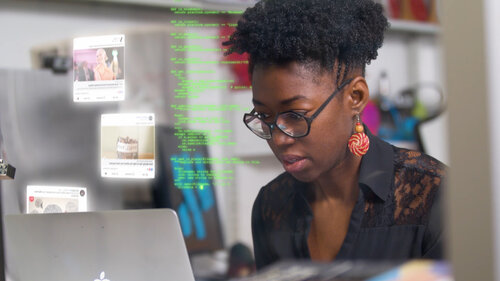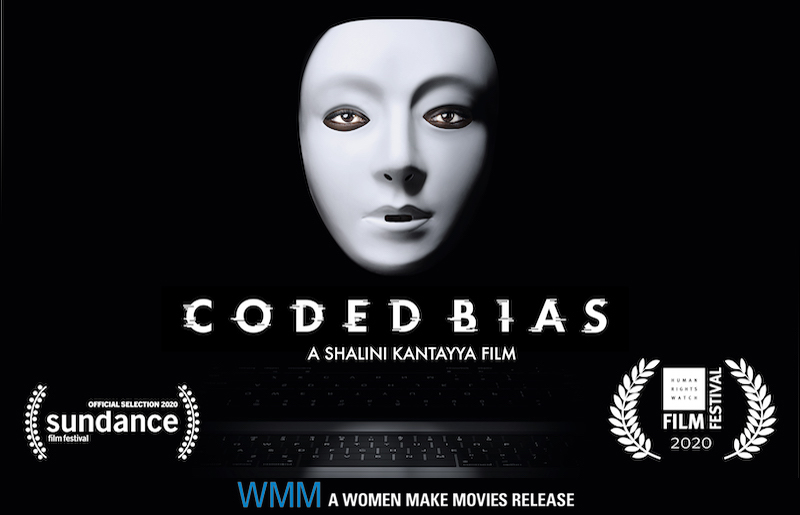The documentary will stream from March 18-27 | Discussion on March 24 at 5:00 pm
Sundance-acclaimed documentary Coded Bias, directed by Shalini Kantayya, opens with computer scientist Joy Buolamwini describing her excitement in working inside MIT’s Media Lab and having the opportunity to experiment with facial-recognition technology. In particular, she was looking for ways it might inspire users. One idea she had was to install the technology into a mirror, enabling it to reshape a reflected image back to the viewer.
“The most important film about artificial intelligence you can watch today”
Janus Rose, Vice

However, when Ms. Buolamwini began working with the software, she found it didn’t work well. The software wasn’t detecting her face in the computer’s camera. After running dozens of experiments with different images, Joy hit upon the idea of placing a white mask over her face. As a Black woman, she found that her skin color was not being recognized by the software. Moreover, the technology didn’t track women’s faces in general, no matter what skin-tone.
As programmed by primarily white, male, computer scientists, artificial intelligence technology has been embedded with the bias of its programmers. The software is now used worldwide and is replacing millions of jobs once performed by humans, such as decisions about school admissions, job applications, loans, and medical insurance. Despite their defects, facial-recognition programs are now used in surveillance programs by police, governments, and private companies. AI’s automated decision-making has the unprecedented power to disseminate bias at scale, even as it becomes a powerful tool of social control.
The film reminds us that the algorithms themselves are a type of black box. Computer scientists don’t know exactly how AI technology sifts through all its copious data, or makes decisions. Chillingly, no one can predict where these black boxes might lead.
“Coded Bias serves as both a wake-up call to invasive practices the public doesn’t yet realize are being implemented, and a call to action”
Valerie Complex, Variety
Stream Coded Bias on Netflix, or free with link, from March 18-27. Join the March 24 discussion. Register at diversityfilmseries.org

Technology and Civil Liberties Attorney at the ACLU
Once you register, you can join us for what promises to be a riveting discussion with Matt Cagle, Technology and Civil Liberties Attorney at the ACLU, as we learn about current uses of AI – and what we can do as informed citizens to protect our privacy and civil rights in a world that is reliant on Artificial Intelligence. He will speak and answers questions from 5-6 PM on Thursday, March 24, on Zoom. Register at diversityfilmseries.org.
For more info, go to diversityfilmseries.org, or contact Denise Bostrom at denise@diversityfilmeries.org. Find out more about the film at codedbias.com.
The Appreciating Diversity Film Series is a non-profit organization sponsored by the City of Piedmont, the Piedmont Adult School, the Piedmont League of Women Voters, the Piedmont Anti-Racism and Diversity Committee, and individual donations.
